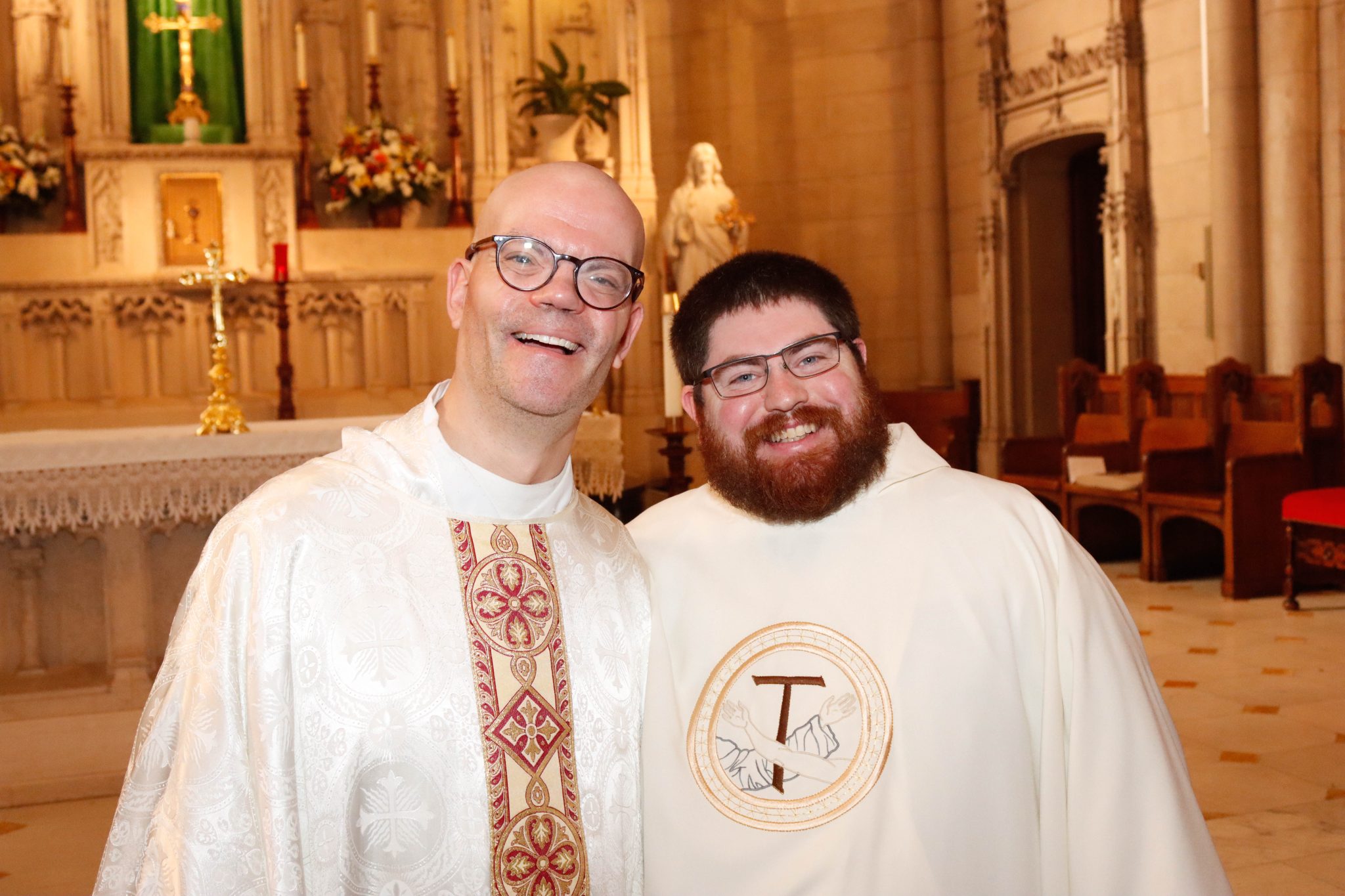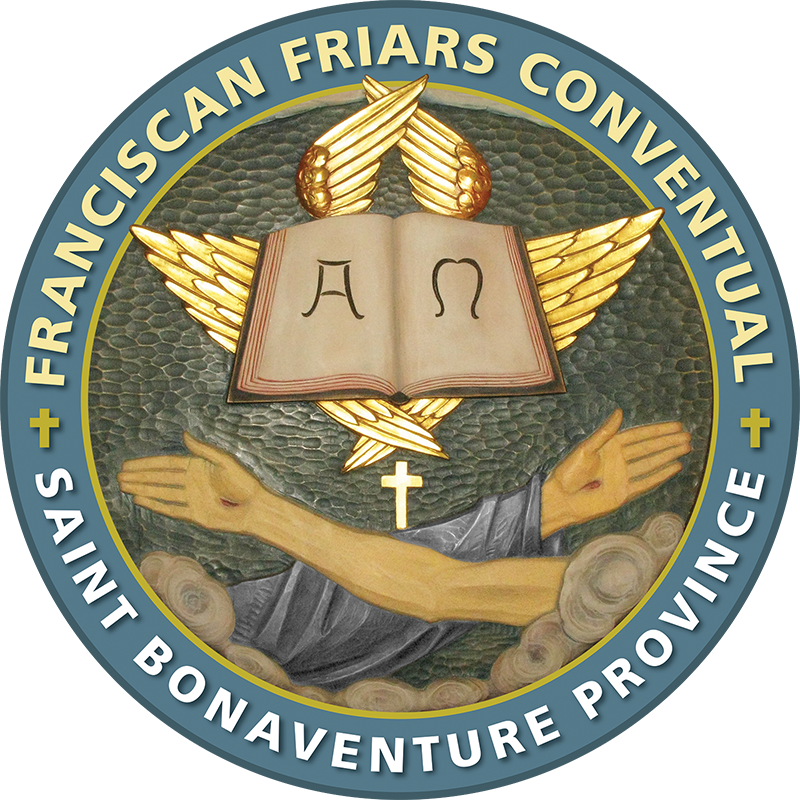To learn more about us or to schedule a visit, contact our Vocation Director, Br. Bernard Mary at friarvocations@franciscancommunity.org
Franciscan Vocations
“After the Lord gave me some brothers, no one showed me what I had to do, but the Most High Himself revealed to me that I should live according to the pattern of the Holy Gospel.”
These words, taken from the Testament St. Francis wrote shortly before his death in 1226, highlight the humility and the audacity of his chosen way of life.
Brief History of the Conventual Franciscan Friars
Following the command strictly to live the Gospel of Jesus Christ, St. Francis of Assisi and his first brothers placed their complete trust in the Lord. God in His Providence would then give them everything else they needed. This radical adherence by a few men in central Italy to the simple, yet forceful commands of the Gospel attracted hundreds, then thousands of followers in a few short years. Then it changed the Church and the world.
For more than 800 years, the followers of Francis have struggled to embrace this challenge amid change. From the Middle Ages, through the Renaissance, Enlightenment, and the Industrial Revolution, into the 20th Century and the fast-paced times we live in now, Friars have adapted to various climates (physical, political, and cultural) in every part of the world. But the Franciscan message itself has never changed.
We are Conventual Franciscan Friars and trace our heritage to the first formal structure of the Order. While many branches flow from that initial spiritual spring, we all claim that single source – the poor little man of Assisi.
Our Conventual Friars of the Franciscan family branch chose to minister in and around the larger towns, rather than in the more remote villages.
From the beginning, we banded together in concentrated communities, rather than living in hermitages. That is why we attach to our names the suffix Conventual, which derives from the Latin convenire, “to come together.”
Today, we, Conventual Friars, continue to live in “convents” or friaries, as they are more commonly known in the United States. Our community of more than 4000 Friars covers the world, divided into Provinces such as ours – The Province of Saint Bonaventure. We wear a gray or black habit, distinct from the brown one typically worn by other Franciscan communities, with a simple cord with three knots, representing our Vows of Poverty, Chastity, and Obedience.
The Basilica of St. Francis in Assisi, Italy remains the spiritual center of our Order. An endless line of pilgrims visits the little town seeking a deeper connection with the Poverello (poor little man) and his total abandonment to God’s Will.
The first step? Let's start a conversation.
The Friars are happy to answer any questions you might have about the community and our lives. Please fill out the form below and our Vocation Director will reach out to you.
The three stages in the initial formation of a Franciscan friar are:
Postulancy
CHICAGO, IL
After initial discernment, the next stage of Franciscan formation is postulancy.
The postulancy is a year-long program of living within the Franciscan community and learning the daily rhythm of Franciscan religious life while engaged in in-house classes on Franciscana, Church documents, and living the religious life.
The postulant is involved in various apostolic works throughout the week, e.g., working with the poor, disadvantaged, and elderly. The main focus of this year’s journey is ongoing conversion, striving to become one with Christ.
Novitiate
Arroyo Grande, CA
When the community and candidate have further discerned one’s call to the Franciscan life, the next stage on their pilgrimage is the Novitiate.
The Novitiate is a year of more intense prayer where one is invested with the Franciscan habit and strives to live in the spirit of the vows. The main focus is contemplation as the novice further discerns their readiness to profess their temporary vows of poverty, chastity, and obedience.
At the end of the Novitiate year, if both the novice and his formation directors believe it is our Lord’s will, the novice will profess temporary (or simple) vows. These vows are usually for four years.
Post-Novitiate
San Antonio, TX
After completing Novitiate, the temporary professed friar will usually begin a period of study along with some outside ministry. For those preparing for the priesthood, their course of study will include the required courses in Philosophy and Theology. For those preparing to be Brothers, a course of study geared toward their future ministry is typical, along with some classes in Theology, Scripture, etc.
During this time, the friar focuses on making a permanent commitment to the Conventual Franciscan life. At the end of this period, and with the approval of his formation directors and other friars in leadership, the friar professes solemn vows: a permanent, life-long commitment to Christ, the Church, and the Franciscan Order.
Discerning a vocation
“Do not be afraid to break out of the comfortable and routine modes of living to take up the challenge of making Christ known in the modern ‘metropolis.’
It is you who must ‘go out into the byroads’ and invite everyone you meet to the banquet God has prepared for His people. The Gospel must not be kept hidden because of fear or indifference.”
-St. Pope John Paul II
Is God calling you to be a Conventual Franciscan friar?
To apply for entrance into the Province of
St. Bonaventure, applicants must:
- Be single, Catholic, and between the ages of 18 and 40
- Have received the Sacraments of Baptism, Confirmation, and Eucharist in the Catholic Church
- Have been Catholic for at least two years if they are a new convert
- Be in good physical and mental health
- Be a U.S. citizen or a permanent resident

Click the button below to download a trifold brochure or in-depth booklet about the Conventuals to learn more about the Order.
